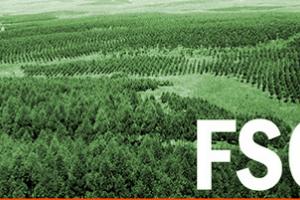On 15 December 2006, the Colombian government made public its decision to reinitiate oil exploration activities in the Siriri and Catleya Blocks located in the Departments of Arauca, Santander, North of Santander and Boyacá, in the northwest of the country, in U’wa territory.
Colombia
Bulletin articles
26 February 2007
Bulletin articles
29 December 2006
A few days ago, the 12th session of the Conference of the Parties on Climate Change – COP 12 – came to an end. The closing session confirmed the scant will of governments and parties in seeking real solutions to the climate crisis. However what did stand out was interest in promoting the use of strategies invented to solve the climate problem based on market mechanisms. Among these, the group of tree plantation projects as greenhouse gas sinks were the most notorious.
Other information
30 November 2006
The Western world, and in particular the countries of the North, gave in to addiction to fossil fuels. This path has led to something that today nobody can doubt: climate change. Many solutions have been put forth to face it, but most of them let humanity’s race towards suicide continue as vigorously as before.
1 September 2006
Press Release - September 1, 2006
Other information
1 September 2006
We the undersigned wish to register our concern over the certification of tree plantations in our country by the FSC, which has granted a green label to monoculture plantations that have proven to be socially and environmentally destructive.
We are aware that the FSC is carrying out a review of its plantation certification policy, and it is our hope that the result of this process will be an end to the certification of these types of plantations by the FSC in the future.
Bulletin articles
1 August 2006
The Bari people, a minority belonging to the Arawak family known as the Children of the Forest, inhabit the Catatumbo Basin in the north of the Department of Santander. The Motilon Bari have a language known as Bari-ara and their own internal and external political and social organization. Their supreme authority is the Autonomous Council of Chiefs, comprising 23 Caciques (Chiefs) from the 23 communities of the Motilon indigenous people.
Bulletin articles
2 July 2006
In 2003, WRM paid a field visit to Colombia to acquaint itself with the communities affected by Smurfit plantations and to gather evidence. At that time, we published the following in an article:
“…The local people told us that ‘the plantations have finished off the water,’ that “spraying has finished with everything there was in the soil,’ that ‘there is hardly any fauna left,’ that there used to be ‘clouds of birds’ and that now ‘only in the summer does some bird appear, but not in winter time,’ and that ‘there are no fish left either.’
Other information
5 June 2006
Colombia is involved in the same process taking place in several Latin American countries regarding the establishment of fast-growing monoculture tree plantations.
Bulletin articles
6 May 2006
The Motilon Bari Indigenous Peoples have been settled for thousands of years in the basin of the Catatumbo River, in the Department of Northern Santander (Colombia). It is a forest zone, covering an area of approximately 126,600 ha and shares its frontier with Venezuela. Its humid forests, that act as a natural filter for Lake Maracaibo (Venezuela), have considerable potential regarding biodiversity, wood and minerals, hydrocarbons and water resources.
Bulletin articles
7 April 2006
Following the adoption of the Forestry Bill in Congress, it was sent for presidential sanction on 13 December 2005. President Alvaro Uribe objected to 12 of the articles of the Law and it was expected that the text would be returned with the objections for discussion by Congress as set out in the procedure.
Bulletin articles
8 January 2006
Perhaps no other Bill in Colombia on environmental matters has given rise to such diverse opinions and to such commotion as the discussion in the Colombian Congress of the General Forestry Law adopted by this institution last December. The strength of the arguments and the response of Colombian environmentalism, social movements and even part of the mass media have been such that for the first time President Alvaro Uribe Velez returned a Bill to the Congress of the Republic.
Bulletin articles
12 November 2005
The forests of the Colombian Pacific, the Pacific Region Territory, one of the areas of greatest biodiversity in the world, have been inhabited for many years now by Afro-descendent riparian communities. Their members were the last Colombian citizens to gain recognition of their right to the ownership of the territories that they possessed and used for centuries.


